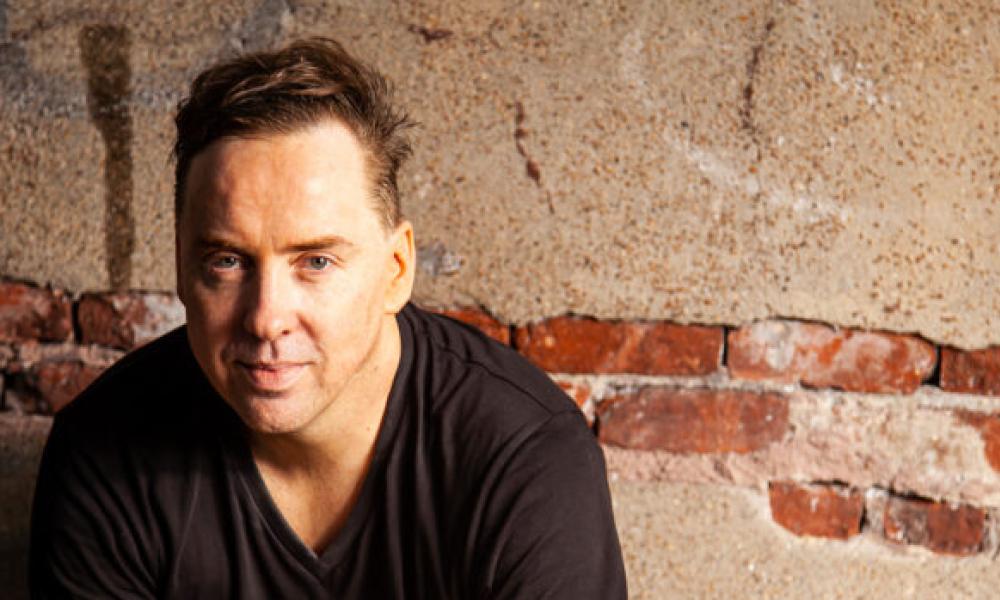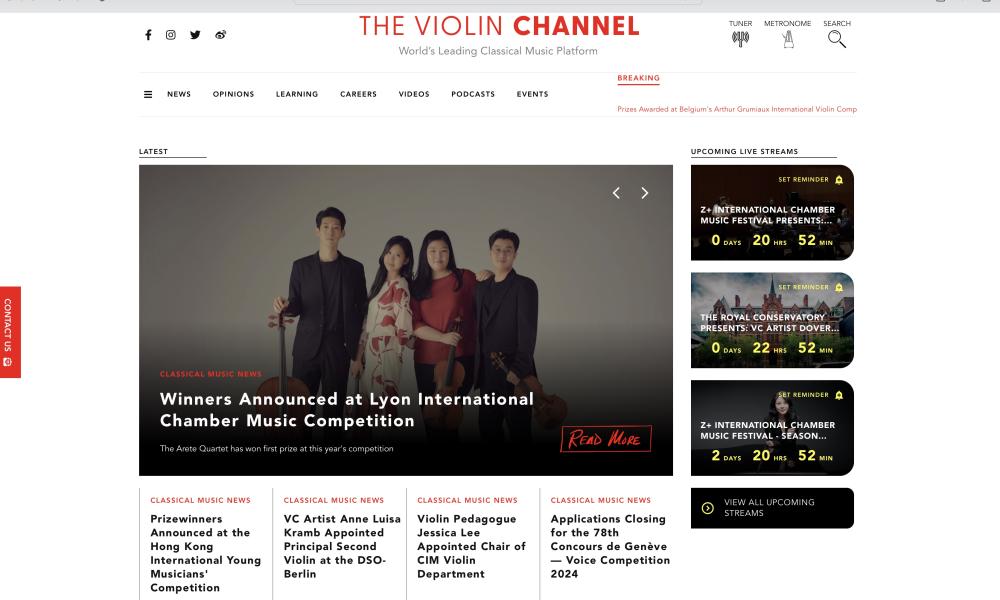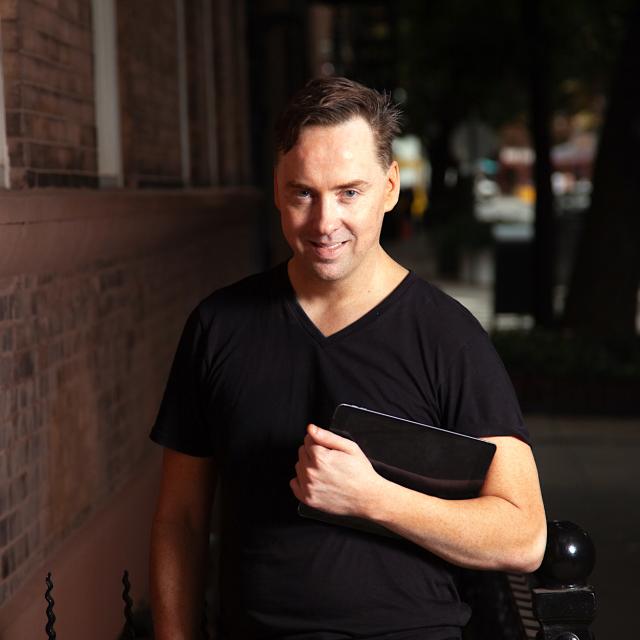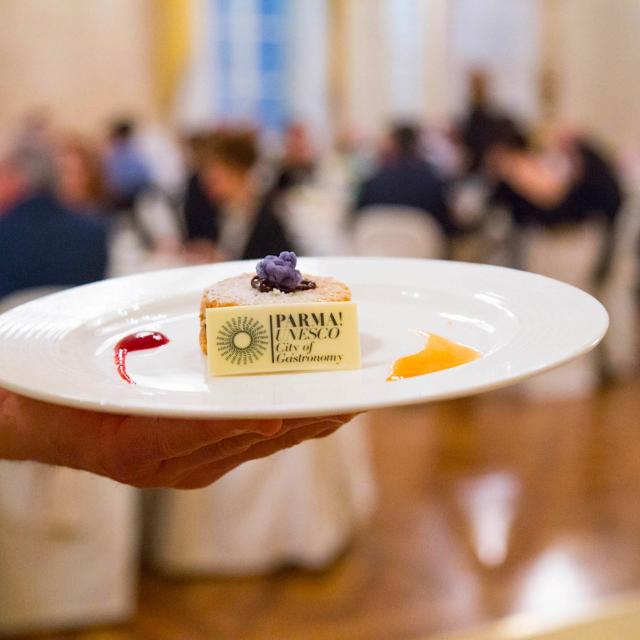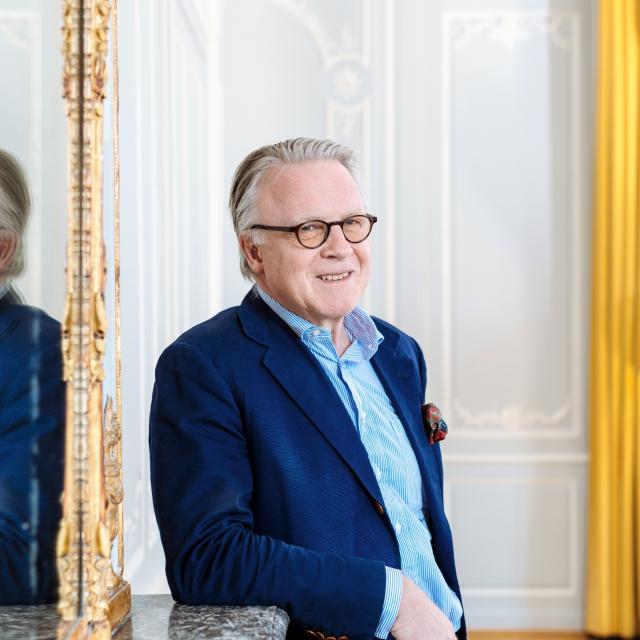Geographically, where is your audience located?
When you look at the website and VC’s social media, about 45% are from North America, and that´s probably because we started here, and we´re English speaking. Europe is around the 28%, and the rest is in Australasia and South America. But the figures are changing and evolving constantly, as we are now doing a lot more content and streaming in Europe.
Do you still work with Weibo?
At this stage, the Chinese media is not a big focus for us. We definitely tried it. In China, Amadeus.tv is doing so well and we’ve been collaborating with them on many projects. We do have partnerships with Tianjin Juilliard and with major Chinese competitions and conservatories. Our goal is to bring their projects out of China and deliver them to the Western world. Our focus is not necessarily on Chinese coverage.
Do you need a VPN to open the Violin Channel in China?
Not the site. The social media, yes.
Do you still work with X (Twitter)?
We do, but it´s not a high priority. We have to really focus on the most important channels. We are always experimenting, trying things. But our focus is very much on our website, Facebook, Instagram, and our e-mail newsletter. Individual content has to be customized before it can be used on the different mediums, as we have different audiences on each of those channels.
Looking at the number of Facebook subscribers, has it begun to decrease or is it still growing?
It is still growing, but the audience has changed. We are still seeing great numbers when we stream on Facebook. A regular stream is still getting 10,000 to 15,000 views on it. Maybe people are not watching whole performances, but they are dropping in and are aware performances are happening. We are also seeing incredible numbers on Instagram with the clips we share from the streams.
Can you let us know the numeber of subscribers for your newsletter?
We're constantly cleaning it up to make sure that's a completely clean list, but it's over 130,000 now, and the open rates are very, very high. Some other outlet’s newsletters have no more than 5% open rates, but ours are sometimes as high as 39%.
You now have 17 people working for you. Can you tell us about the team?
We have a core team here in New York, but we also have writers all around the world. Maybe it´s because I´m from Australia, but we recruited for writers in Australia and New Zealand some time ago, so we have a writing team there. It basically means that we can literally work around the clock. When we finish here at 5:00 PM in New York, we´re briefing our articles to our team in Australia and New Zealand. They wake up in the morning, and they have the whole day to write their articles, before we come back to the office in New York at 9:00 AM the next day.
But besides the writers, we also have senior, experienced consultants to help us navigate various issues. Our editorial consultant is David Masello, an experienced editor who has written for The New York Times, and the Wall Street Journal and others. Benjamin Woodroffe has joined our team consulting for Europe partnerships, and David Katzive, an acclaimed video producer and curator, is our Creative Director for the Vanguard Concerts Series.
So it´s really become a full-fledged company now. You once mentioned you were so busy you didn´t have time to cook, so you went out to eat every night and used your stove only to store Diet Coke and coffee pods.
I still do, but I don´t drink Diet Coke anymore. I do drink coffee though…
At some point, you mentioned you were thinking of launching “The Piano Channel,” but it seems like The Violin Channel has just opened up for all the other instruments. How quickly is the balance changing towards other instruments?
In the beginning, we were discussing separate channels for strings, piano, voice, using the same content model. But in the end, we realized it was easier to put everything together and only have one Violin Channel which can cover the most top-end, relevant events and news of the entire classical music industry.
At the moment, we are really busy in the piano world. We already livestreamed the Horowitz Competition last year, followed by Honens, the Gilmore, Vendome and American Pianists Association Awards. This month, we´ll be covering and streaming the Montreal Piano Competition, and then we’re in Brussels at the Queen Elisabeth Competition, and even to Geneva later this year for their vocal competition.
It´s never been just about the violin, it was always string-focused. Now it´s much more, and it´s still expanding. At this stage, a Trumpet competition might be a bit of a stretch, but who knows what will happen in the future.

